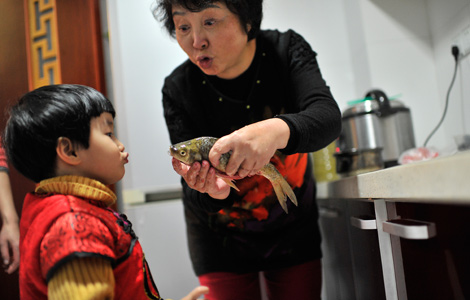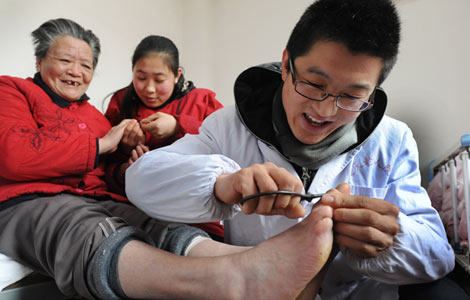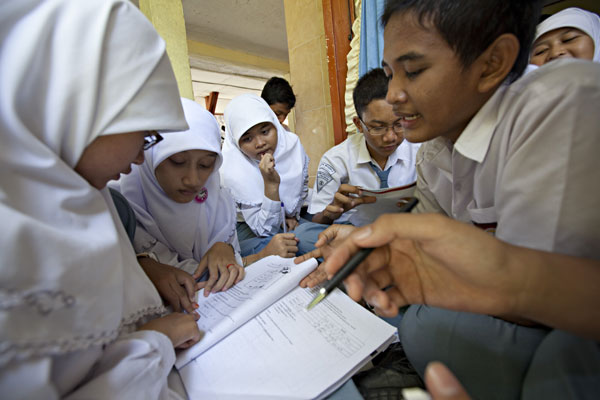Restoring a link to their heritage
Updated: 2013-12-24 07:41
By Elaine Tan (China Daily)
|
||||||||
Samantha Tan, 39, is what Malaysians refer to as a "banana", a term that describes an ethnic Chinese who cannot speak, read and/or write in Mandarin. This ranges from complete ignorance of the language to having a decent command of one or two of the three skills.
"Growing up, we spoke Mandarin at home, but I've always wanted to do a 'tuneup', especially since Malaysian Mandarin isn't considered proper Putonghua. So going to China to study Mandarin was on my 'bucket list' of things to do," said Tan, who is not able to read or write the language.
When her then boyfriend (now husband) found employment in Shanghai, she opted to give up a cushy job in investment at an insurance firm to pursue her dream.
"It was a difficult decision. I agonized over it for almost three months. But in the end I decided to leave because this was an once-in-a-lifetime chance. I felt I might regret not doing it."
Tan arrived in Shanghai at the end of 2002, with a place at Shanghai Jiao Tong University. Besides reading, writing and speaking Mandarin, she picked up calligraphy, Chinese painting and tai chi as electives during two semesters at the university.
"I think I did more in that one year than in the rest of my time in Shanghai!" she recalled.
Like Tan, Chen Yi Ling, 32, also headed to China to learn Mandarin.
"I was on a long break from work and wanted to take a holiday. At the same time, I also had a fascination for modern-day China, Chinese culture and history, and wanted to experience living in China," she recounted. A three-month language program at the Beijing Language and Culture University at the end of 2009 met her needs.
"Bananas" such as Tan and Chen are a minority among Chinese Malaysians, whose Chinese literacy is quite high. In 2012, more than 85 percent of the 6.5 million ethnic Chinese in the multiracial Southeast Asian country were deemed Chinese literate. This is largely due to a vibrant Chinese education system - the only one outside China - that uses Mandarin as a medium of instruction from elementary level through to higher education.
But back when Tan was of school age, urban middle class parents like hers preferred to send their children to national schools, where they were instructed in Malay but given wide exposure to English, even though they (the parents) had received a Chinese education.
"It was exotic for them, I guess. Like how it's exotic now for 'bananas' to send their children to Chinese-medium schools," said Tan.

 A return to motherhood at 60
A return to motherhood at 60
 AK-47 inventor Mikhail Kalashnikov dies
AK-47 inventor Mikhail Kalashnikov dies
 Oil spill from Qingdao blast kills sea life
Oil spill from Qingdao blast kills sea life
 Ice storm hits Toronto
Ice storm hits Toronto
 A man and a child jump off Manhattan building
A man and a child jump off Manhattan building
 Male nurses in demand as caregivers for elderly
Male nurses in demand as caregivers for elderly
 Moving beyond language skills
Moving beyond language skills
 Khodorkovsky says he will not enter Russian politics
Khodorkovsky says he will not enter Russian politics
Most Viewed
Editor's Picks

|

|

|

|

|

|
Today's Top News
Private clubs are targeted by anti-graft campaign
China makes it easier to sue government
China promotes core socialist values
China deliberates adjusting one-child policy
Washington tries to shift spying blame to China
Swift justice urged for murder case
Policies to assist those who lost child
China's moon rover flexes muscles
US Weekly

|

|








